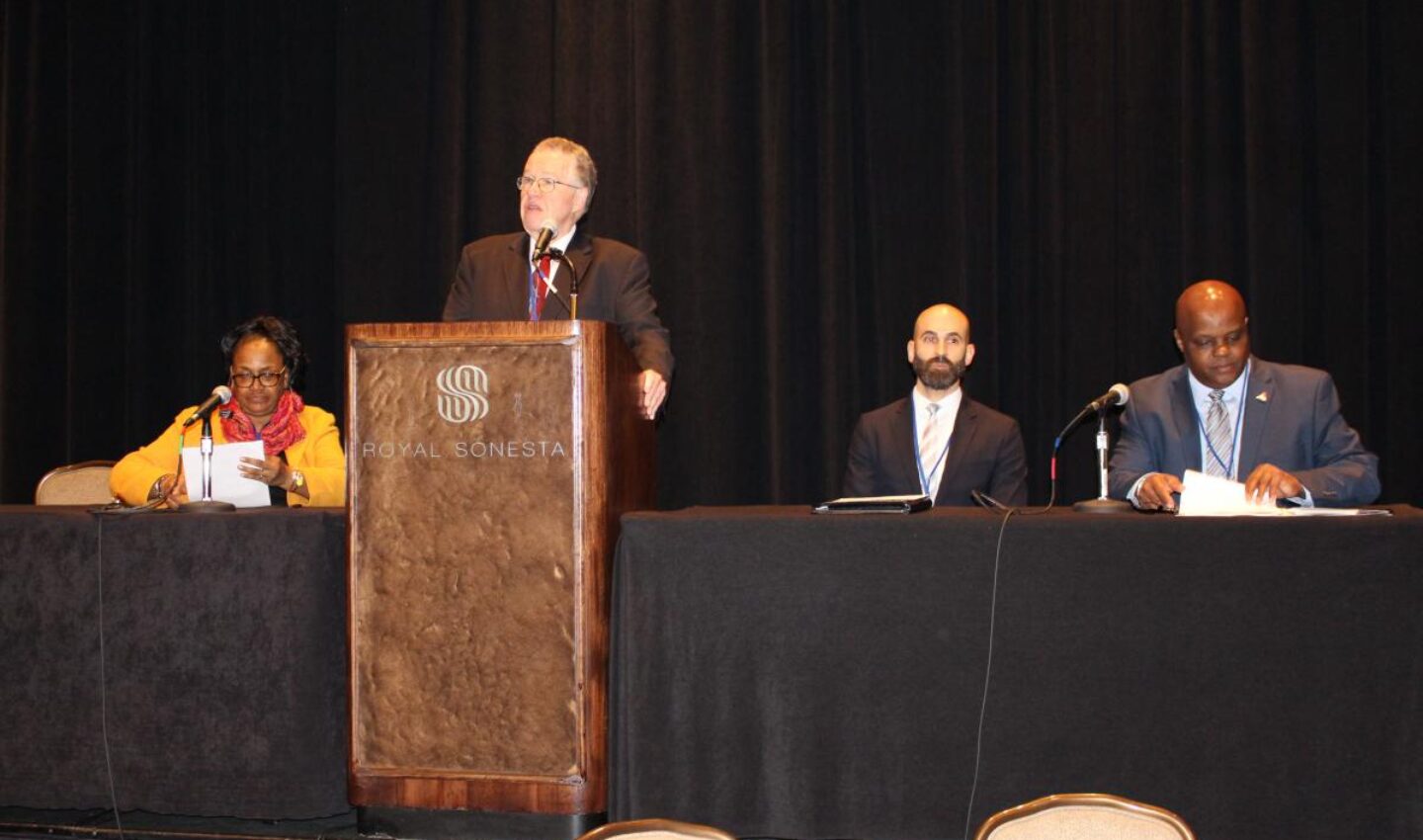Social determinants are strong predictors of a person’s health, those being employment, income, housing, food security and social inclusion. What are the outcomes, then, when one characteristic has downstream impact on all the determinants?
I learned the answer at the 11th Academic and Health Policy Conference on Correctional Health in Houston on March 22, when leaders from the Association of American Medical Colleges (AAMC), the Academic Consortium on Criminal Justice Health (ACCJH) and JustLeadershipUSA discussed the impact of criminal justice involvement on the health of individuals and their families.
The hardships and stigma of justice involvement were the focus of discussions from panelists Ronald Simpson-Bey, director of Outreach and Alumni Engagement for JustLeadershipUSA, and Precious Bedell, research assistant and doctoral candidate at the University of Rochester and board member of ACCJH. Simpson-Bey reflected on his own experiences as well as the experiences of his clients and members. Bedell outlined the ways felony convictions having lifelong consequences on health and wellness, even though one’s debt to society has been paid.
I joined Philip Alberti, PhD, senior director of Health Equity Policy and Research at the AAMC to speak about our organizations’ commitment to addressing the impact of mass incarceration in the United States, where incarceration rates are seven times those of other Western industrialized nations. 
The presentation began with a video that the AAMC produced and filmed in Worcester and Rhode Island. The video features interviews with individuals who were currently or previously incarcerated. They described their health conditions, including mental illness, substance use disorders, infections from injection drugs and chronic health problems. Many spoke passionately about the care they have received while incarcerated, as well as the stigma of criminal justice involvement and the impact on their families. Several shared the hardships they faced post-release, including barriers to employment, food, shelter and access to health care. The film, Social Justice Behind and Beyond Bars: Criminal Justice, Health and Academic Medicine, is part of a toolkit available at the AAMC.
Ninety-five percent of incarcerated individuals return to their communities, and the high prevalence of mental, physical and addiction disorders defines these individuals as high risk/high cost at a time when they will be members of Medicaid Accountable Care Organizations (ACOs). Identifying social determinants, coupled with upstream advocacy, can help to mitigate high costs and the poor outcomes and suffering described during this session.


